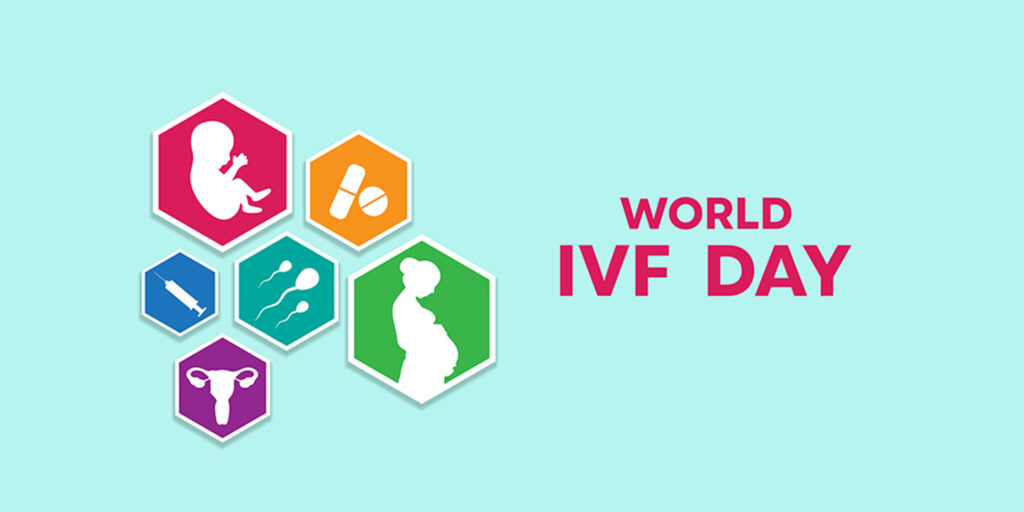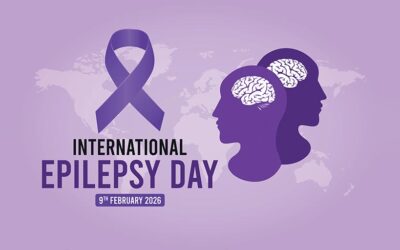World IVF Day 2025: A Tribute to Hope, Resilience, and Reproductive Science

Infertility, whether due to a medical condition, age-related factors, or unexplained causes, can bring a constant stress and a deep sense of uncertainty. Fortunately, In Vitro Fertilisation (IVF) – an assisted reproductive technology (ART) – offers hope for those facing fertility, helping them realise their dream of parenthood. Honoring this life-changing advancement and the resilience of those undergoing treatment, World IVF Day is observed every year, as a reminder of the progress made in reproductive medicine and the hope it brings to countless families. In this article, we’ll discuss the IVF process, its emotional and physical impact, and the ways in which healthcare institutions such as Graphic Era Hospital support individuals throughout their fertility journey.
Table of Contents
ToggleWorld IVF Day 2025: Date and Global Significance
Observed on the 25th of July, World IVF Day marks the birth anniversary of Louise Brown, the world’s first baby conceived through In Vitro Fertilisation in 1978. This milestone not only changed the landscape of reproductive medicine but also gave hope to millions of families facing infertility.
The day is globally recognised to raise awareness about IVF, reduce the stigma around fertility treatments, and celebrate the scientific and clinical progress that has made parenthood possible for many. It also coincides with World Embryologist Day, acknowledging the behind-the-scenes efforts of embryologists whose expertise is vital to every successful IVF procedure.
World IVF Day 2025 encourages healthcare providers, patients, and the wider community to engage in conversations about fertility awareness, emotional well-being, and access to safe, ethical reproductive care.
What Is IVF and How Does It Work?
In Vitro Fertilisation (IVF) is a type of assisted reproductive technology (ART) used to help individuals and couples conceive when natural conception is not possible or has repeatedly failed. The process involves fertilising an egg with sperm outside the body, in a laboratory, and then transferring the resulting embryo into the uterus.
Here’s how IVF typically works:
- Ovarian stimulation: Hormonal injections are given to stimulate the ovaries to produce multiple mature eggs in one cycle.
- Egg retrieval: The eggs are collected from the ovaries using a minor surgical procedure under sedation.
- Fertilisation in the lab: The retrieved eggs are combined with sperm in a laboratory dish for fertilisation.
- Embryo development: Once fertilised, the embryos are monitored for a few days as they grow.
- Embryo transfer: A healthy embryo is selected and transferred into the uterus, where it may implant and result in pregnancy.
- Pregnancy test: About two weeks after the transfer, a blood test is done to confirm if implantation has occurred.
IVF may be recommended in cases of blocked fallopian tubes, low sperm count, advanced maternal age, unexplained infertility, or certain medical conditions. While the process can be physically and emotionally demanding, it has helped millions of people worldwide begin or expand their families.
The IVF Journey: Steps, Emotions, and Expectations
The IVF journey is more than just a medical process, it’s an emotional and deeply personal experience. Each stage brings its own set of hopes, uncertainties, and decisions. While the steps may seem clinical, the journey often involves physical challenges, emotional highs and lows, and the constant balancing of expectations. Here’s an overview of what individuals and couples may experience during the IVF journey:
- Initial consultation and fertility counselling: The journey begins with medical evaluations, discussions around reproductive history, and emotional support through fertility counselling to prepare for the process ahead.
- Diagnostic tests and planning: Hormonal profiles, ultrasound scans, and semen analysis help create a tailored treatment plan based on individual needs.
- Undergoing IVF treatment: From ovarian stimulation to egg retrieval and embryo transfer, each phase requires time, patience, and ongoing monitoring.
- Emotional impact and coping: IVF can lead to anxiety, disappointment, or stress, especially when outcomes are uncertain. Access to emotional wellness support during this time is essential.
- Support from care teams: Compassionate communication and clear guidance from fertility specialists, nurses, and counsellors play a key role in helping patients navigate the journey.
- Waiting period and outcome: The two-week wait after embryo transfer can be emotionally intense. Regardless of the result, support is important at every step.
IVF in India: Advances, Access, and Technology
Over the past few decades, India has made significant strides in IVF and assisted reproductive technologies, offering more accessible and affordable fertility care across the country. From urban fertility centres to growing outreach in semi-urban areas, the landscape of reproductive medicine continues to evolve. Key highlights of IVF advancements in India include:
- Improved IVF success rates: With better lab conditions, personalised protocols, and refined embryo selection techniques, success rates have steadily improved, especially for younger couples and those with early intervention.
- Adoption of advanced IVF technology: Techniques such as ICSI (Intracytoplasmic Sperm Injection), blastocyst culture, time-lapse embryo monitoring, and preimplantation genetic testing (PGT) have enhanced outcomes for patients with complex fertility issues.
- Growing access to fertility care: IVF centres are expanding into Tier 2 and Tier 3 cities, improving access for couples outside major metropolitan areas.
- Skilled specialists and embryologists: India has a growing pool of trained fertility specialists and embryologists, whose expertise plays a critical role in IVF success.
- Cost-effective treatment options: Compared to many Western countries, IVF in India remains more affordable, though costs can vary based on technology, medication, and number of cycles.
With increasing awareness and technological progress, India continues to become a global destination for fertility care, backed by both clinical innovation and compassionate patient support.
Understanding IVF Costs and Considerations
One of the most common questions around fertility treatment is the cost of IVF. While IVF in India is generally more affordable than in many other countries, expenses can vary based on multiple factors, such as:
- Location and clinic reputation: Premium IVF centres in metro cities may charge more due to advanced infrastructure and experienced specialists.
- Type of treatment and add-on procedures: Additional services such as ICSI, PGT, donor eggs or sperm, and embryo freezing can add to the total cost.
- Medication and hormonal injections: A significant part of the cost includes fertility drugs used for ovarian stimulation, which vary in dosage and duration.
- Number of IVF cycles needed: Some couples may require more than one cycle, depending on age, diagnosis, and response to treatment.
- Lab quality and technology used: Clinics with advanced labs and modern embryo culture techniques may have higher charges but also better success rates.
While IVF can be a financial commitment, early counselling and personalised treatment planning help manage expectations and avoid unnecessary expenses.
IVF Side Effects and Safety Measures
While IVF is generally considered safe, it is still a medical procedure that involves hormonal stimulation, egg retrieval, and embryo transfer – all of which may carry some side effects. Understanding these risks helps individuals prepare better and seek timely medical guidance when needed. Common IVF side effects may include:
- Bloating and abdominal discomfort: Often due to ovarian stimulation and enlargement of the ovaries.
- Mood changes and fatigue: Hormonal fluctuations can affect emotions, energy levels, and sleep patterns.
- Mild spotting or cramping: This may occur after egg retrieval or embryo transfer.
- Breast tenderness and headaches: Caused by increased hormone levels during treatment.
- Ovarian Hyperstimulation Syndrome (OHSS): A rare but serious condition where ovaries become swollen and painful; close monitoring reduces this risk.
Safety measures followed during IVF:
- Individualised treatment plans: Hormone doses and protocols are tailored based on the patient’s age, medical history, and response.
- Regular monitoring: Ultrasounds and blood tests throughout the cycle ensure early detection of any complications.
- Supportive care: Emotional and physical support is provided to help manage stress and side effects.
Honouring Embryologists and the Strength Behind Every IVF Journey
Behind every IVF procedure is a team of skilled professionals working with precision and care. Among them, embryologists play a vital yet often unseen role. From handling eggs and sperm in the lab to carefully monitoring embryo development, their expertise is critical to the success of IVF.
World IVF Day also coincides with World Embryologist Day, a tribute to those who work tirelessly behind the scenes to help make parenthood possible. Their commitment to accuracy, safety, and scientific excellence directly impacts IVF outcomes.
Equally important is acknowledging the emotional strength of those undergoing fertility treatment. The IVF journey can be long, uncertain, and emotionally demanding. Choosing to pursue IVF, despite its challenges, reflects immense courage and hope.
Role of Healthcare Institutions in Fertility Awareness
Healthcare institutions play a crucial role not just in delivering IVF treatment but also in raising awareness around fertility, reproductive rights, and emotional well-being. At Graphic Era Hospital, we believe that informed care begins with open conversations and personalised support. Here’s how we contribute to fertility awareness and care:
- Fertility Counselling: One-on-one sessions help individuals and couples understand their options, cope with emotional stress, and make informed decisions about their reproductive journey.
- Women’s Health Programmes: Our dedicated services address reproductive health at all stages, from menstrual care to preconception planning and beyond.
- Reproductive Health Camps: Community-based outreach events aim to improve fertility awareness, offer basic evaluations, and connect people to timely care.
- Family Planning Awareness: Through education and counselling, we guide individuals on safe, respectful, and well-informed reproductive choices.
- Emotional Wellness Support: Our care extends beyond physical treatment, with access to therapists and emotional support services tailored to those navigating fertility-related challenges.
- Maternity and Neonatal Care: For those who successfully conceive, we provide continuous support through expert-led antenatal, delivery, and newborn care services.
By combining clinical excellence with compassionate care, Graphic Era Hospital remains committed to supporting every individual and couple on their unique fertility path.
Final Word
World IVF Day 2025 is a reminder of how far reproductive science has come, and how important it is to continue supporting those on their fertility journey with knowledge, compassion, and access to quality care. IVF is not just a medical process; it’s a path shaped by resilience, expert guidance, and hope. To consult our fertility experts or learn more about our women’s health and reproductive services, call 18008897351 and take the next step with confidence.
Frequently Asked Questions
What is IVF treatment and how is it different from natural conception?
IVF, or In Vitro Fertilisation, is a form of assisted reproductive technology (ART) where an egg is fertilised with sperm outside the body in a laboratory. The resulting embryo is then transferred into the uterus, unlike natural conception which takes place internally.
What is the IVF procedure and how long does it take?
The IVF procedure involves ovarian stimulation, egg retrieval, fertilisation, embryo culture, and embryo transfer. A single IVF cycle typically takes 3 to 4 weeks, but the full process may vary depending on individual factors.
What is the success rate of IVF?
The IVF success rate depends on factors such as age, cause of infertility, and overall health. In India, success rates range from 30% to 60% per cycle, with higher rates seen in younger women and with advanced IVF technology.
What are the common side effects of IVF treatment?
IVF side effects may include bloating, mood swings, mild cramping, and fatigue. In rare cases, a condition called Ovarian Hyperstimulation Syndrome (OHSS) can occur. All procedures at Graphic Era Hospital are closely monitored to ensure safety.
What is the cost of IVF in India?
The IVF cost in India can vary widely, depending on the clinic, location, and any additional procedures like ICSI or embryo freezing. Most treatment plans include consultation, lab work, medications, and follow-ups.
What is the history of IVF and why is July 25 important?
World IVF Day is observed on July 25, marking the birth of Louise Brown in 1978 – the first baby born via IVF. This day also honours embryologists and celebrates decades of innovation in fertility science.
How can lifestyle affect IVF success?
Maintaining a healthy lifestyle, including a balanced diet, regular exercise, and managing stress, can positively impact IVF success rates. Avoiding smoking and excessive alcohol is also recommended.
Is IVF painful or emotionally difficult?
The IVF journey can be physically and emotionally challenging. While most procedures are minimally invasive, emotional ups and downs are common. Access to emotional wellness support and fertility counselling is crucial throughout the process.
Can I undergo IVF if I have a specific medical condition?
Many individuals with underlying health issues can still consider IVF. Conditions like PCOS, endometriosis, or blocked fallopian tubes are common reasons for choosing IVF treatment. A fertility consultation helps assess eligibility and plan accordingly.
What role do embryologists play in the IVF process?
Embryologists handle and monitor eggs, sperm, and embryos in the lab. Their expertise in IVF technology and embryo development plays a key role in the outcome of treatment, which is why they are recognised on World Embryologist Day.
By Specialities
- Bariatric Surgery
- Cancer Care
- Cardiology
- Dental
- Dermatology
- Diabetes & Endocrinology
- Endocrinology and Diabetes
- ENT (Ear Nose Throat)
- Eye Care
- Gastroenterology
- Haematology
- Health Awareness
- Health Care
- Health Tips
- Hematology
- Hepatology
- Internal Medicine
- Mental Health and Behavioural Sciences
- Metabolic
- Neonatology
- Nephrology
- Neurology
- Nutrition & Dietetics
- Obstetrics & Gynaecology
- Oncology
- Ophthalmology
- Orthopaedics
- Paediatric
- Physiotherapy & Rehabilitation
- Plastic and Reconstructive Surgery
- Psychology
- Pulmonology
- Rheumatology
- Spine
- Urology
Recent Posts
- World Hearing Day 2026: Empower Yourself to Protect and Improve Your Hearing
- Understanding Chickenpox: Early Signs, Treatment Options, and Recovery Tips
- Gallbladder and Bile Duct Cancer Awareness Month 2026: All You Need to Know
- High-Fibre Diet: Health Benefits and Top Fibre-Rich Foods
- Why Do My Gums Bleed While Brushing?
Need expert medical advice?
Share your details and our healthcare specialists will reach out to assist you.
By proceeding, you acknowledge and agree to our Privacy Policy, Terms of Use, and Disclaimer.



















